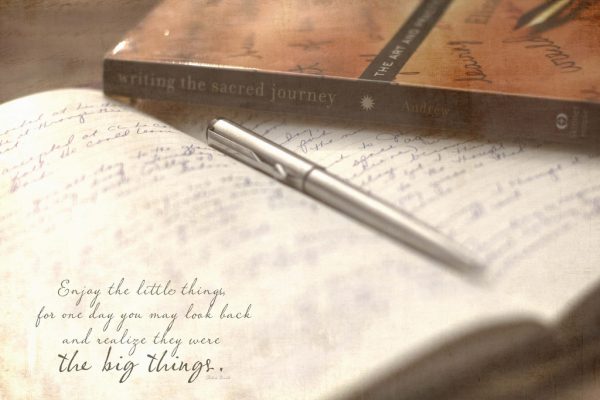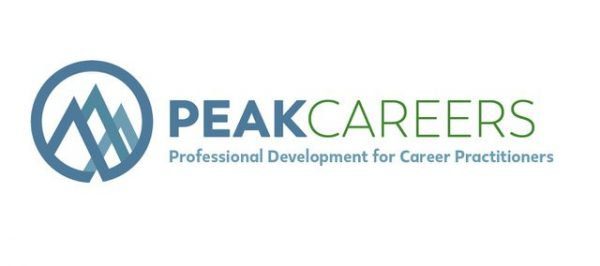
As a career coach/counselor, do you ask your clients to journal? I do occasionally because I believe the process of taking ideas out of their heads and putting them on paper can be a very powerful activity.
“A goal not written is only a wish.” I believe this is true in the career development process…write it down and think it through.
Personally I try to journal every day, first thing in the morning. I choose to free-style it and just write about what is important to me that day. It clarifies the ideas in my head and takes them from fuzzy thinking to something concrete. I also think it helps to journal on a regular schedule so it becomes part of your day.
I also prefer the hand written journal over typing them out, even though I can type much faster than I write. The power of writing is two-fold for me. It slows me down and it helps me take my ‘thinking” and flush it out because I have to put it on paper. Sometimes you realize those ideas bouncing around for days in your head have not really been thought out enough. Writing them down will help solidify your thinking…and slow you down to process it better.
It’s for those same reasons that I ask my clients to journal. Recently I was working with a client who was a history major and English minor and has been working in software sales as an account manager since getting out of college ten years ago. She really has no idea what she wants to do next but she knows it is not account manager in software.
So I sent her to the website, What To Do With a Major in.. and asked her to explore everything under history and English for what I call ‘idea-generation’. I suggested she keep a journal and write down the jobs, types of jobs, companies, or industries that appeal to here. “Trust your instincts” and see if you can discover a theme or two. Embrace intentional serendipity and be open to discovering something by accident. I am hoping that themes will emerge.

I was curious how others use journaling in both their personal lives and as career coaches so I sent out a Survey Monkey and this is what I learned. About 85 people responded. Thank you! (See the entire survey results here)
Personal journaling:
- 65% said they journal at least occasionally
- Most of them used a freestyle approach, writing whatever comes into their heads
- A number start off writing what they are grateful for and then move on
- It appears that most people like the unstructured and flexible journal model
What I was most interested in was how career coaches are using journaling in their practice.
This is what I learned about that.
42% said they asked clients to journal (actually most of them used the word ‘suggest’) at least occasionally. And by far most coaches used a prompt of some sort. A few of them suggested more of a “brain dump” model like this person who said it is “...useful to carry around a notebook to jot down ideas as they occur and/or to make lists of things that are interesting, that they like doing, that they don’t like doing, etc.”
Here are a few other more “open model” suggestions.
- I don’t propose topics; it’s more about how they’re feeling, what they’re doing in their job search, etc. I am hoping they’ll express their anger, frustration, sadness on paper than in public.
- I have my first-year students in my career development class write journals. Usually, it is more of a reflection about what they are learning about themselves as result of an assessment they took, or a class speaker, etc.
- Sometimes I suggest students get in the habit of reflecting on their day by writing down everything that happened during the day. I always stress, that it doesn’t matter how insignificant it is, write it down. Journaling is especially important when students are angry or feeling down. I tell them they can write anything they need to help get their feelings out. They can shred their paper afterward if they would like or they can keep it and read it later when they are feeling better.
By far, coaches who assign journaling occasionally suggested topics to write about such as:
- Stories of accomplishments to ‘mine’ for skills
- I often use quotes (Dr. Who, Winnie the Pooh, authors, superheroes, and inspirational speakers)
- Questions such as “if money and time weren’t an issue, what would you do with your day?” Basically look for ways to get them to reflect on certain aspects. I also encourage gratitude journaling.
- Looking at your change wheel, write about one of the changes that has impacted you most.
- “Noticing things” – Like in specific situations observing yourself – do you move toward or away? Why?
HERE ARE THREE EXAMPLES OF WHEN I MIGHT SUGGEST CLIENTS JOURNAL
One. Recently, I was working with a couple of clients who had been laid off. Both were blind-sided to the layoff. When I saw them on Tuesday after their Friday meeting explaining that “you no longer work here,” they were still in shock.
I knew there was no way I was going to be able to help them that day other than reframe their situation for them. For these folks I suggest journaling to help them change their mindset and attitude. For example, I ask them to review the Best Places to Work in Maine website so they know there are good places to work out there.
Two: Other times I have had clients who seemed to be picking straws out of the air and were naming job titles… I could do graphic design but I don’t know what else I could do. Maybe public relations… I suggest journaling for idea generation. Too often people are myopic in their view of the jobs out there and getting them to expand their thinking about what else is out there can be helpful. I might suggest going on Indeed.com or glassdoor.com and just do searches for jobs they’ve thought about. Not for actual jobs, but ideas. What skills are they looking for? Does it look interesting? What other jobs need those skills.
I will also sometimes send them to ONET or Occupational Outlook Handbook to play what I call the “related occupation game” and look at any related jobs or occupations that come up in their search. Then write down occupations that they discovered. (As I say, embrace intentional serendipity 🙂
The third reason I will often suggest journalling is for skill identification. People often have such a difficult time articulating their skills. I might assign a prompt like:
“What are you most proud of?
“What did you do / what action steps did you take to make it happen.”
“What have they been doing that seemed easy or that someone stated they did well.”
I ask them to review their journals and look for specific skills that keep popping up.
*See all 84+ respondents to the survey here.
How do you use journaling in your practice?
Check out this interview with
three career coaches who use journaling in their practice.
Jim Peacock is the Principal at Peak-Careers Consulting and writes a weekly email for career practitioners. Peak-Careers offers discussion-based online seminars for career practitioners focused on meeting continuing education needs for CCSP, GCDF and BCC certified professionals as well as workshops for career practitioners and individual career coaching.
He is the author of A Field Guide for Career Practitioners: Helping Your Clients Create Their Next Move and the recipient of the 2020 Kenneth C. Hoyt Award from the National Career Development Association.
Sign up here to receive my TOP 10 TIPS WHEN WORKING WITH AN UNDECIDED PERSON. You will also receive the career practitioner’s weekly email on a variety of career topics, industry news, interesting events, and more.



Leave a Reply